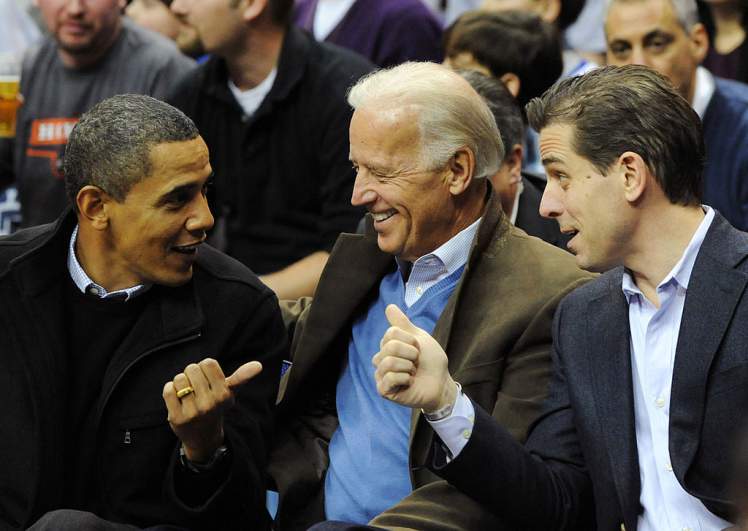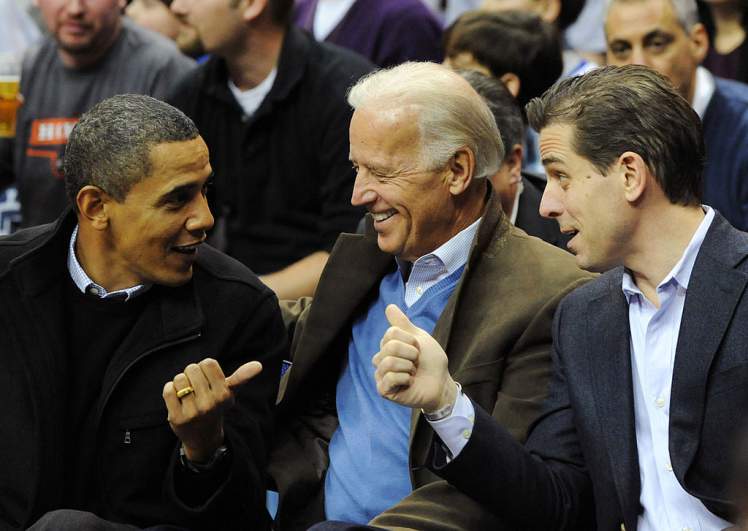
This is soooooo boring.
For nearly a week, Washington has been consumed by reports that Donald Trump pressured Ukrainian President Volodymyr Zelensky to dig up dirt on Democratic frontrunner Joe Biden.
The furor began on Wednesday, Sept. 18, when the Washington Post disclosed that Trump had said something to an unknown foreign leader that “was so alarming that a US intelligence official who had worked at the White House went to the inspector general of the intelligence community.” Two days later, the Wall Street Journal reported that the foreign leader was Zelensky and that Trump had asked him “about eight times” in the course of a single phone conversation to look into allegations that then-Vice President Biden had pushed for the removal of a public prosecutor investigating a Ukrainian company that employed his son, Hunter. A day after that, Biden complained that Trump was trying to “smear me,” while on Sunday, Adam Schiff, Democratic chairman of the House intelligence committee, declared that Trump might be guilty of “the most profound violation of the presidential oath of office … during just about any presidency.”
From initial report to America’s greatest scandal ever in just four days – surely this was some sort of Washington speed record. Since the moment Trump was elected, Democrats have been searching for “the Big One,” as New York Times columnist Maureen Dowd put it, the scandal “that’s going to finally bring Donald Trump down” – and now at last they found it.
Of course, Democrats said the same about Russiagate, the scandal that dominated headlines for two and a half years but fizzled when special prosecutor Robert Mueller said he was unable to come up with evidence “that members of the Trump Campaign conspired or coordinated with the Russian government.” But now that Trump stood accused of conspiring or coordinating with the Ukrainian government – or at least trying to – surely the Big One was finally at hand.
But it’s not. One reason is that there’s no sign of a quid pro quo. The Washington Post suggested in its initial report that the purpose of the July 25 phone call was to “manipulate the Ukrainian government into helping Trump’s reelection campaign.” The means, supposedly, was $250 million in military aid that he was threatening to withhold if the Ukraine failed to cooperate. But the Wall Street Journal’s source specifically denied that Trump had threatened a cut-off while the New York Times reported that a decision to end military aid – subsequently revoked – had actually occurred weeks earlier.
Another reason for skepticism is that charges of a smear job clearly misplaced. If anyone’s activities are suspicious, it’s Biden’s, and Trump can hardly be blamed for wanting to get to the bottom of them.
To briefly recap: in February 2014, a US-backed coup spearheaded by ultra-rightists sent Ukrainian President Viktor Yanukovych fleeing and installed billionaire Petro Poroshenko in his place. This was bad news for a wealthy Yanukovych supporter named Mykola Zlochevsky who was widely accused of corruption and was in danger of losing all or some of his holdings. In an attempt to smooth things over with the Americans, Zlochevsky appointed Hunter Biden to a lucrative post with Burisma Holdings, a natural-gas company he founded in 2002. Hunter had just been discharged from the US Navy after testing positive for cocaine. He had no experience in the natural-gas business and knew nothing about the Ukraine. But he got the job anyway along with a salary of $50,000 a month.
But when the Ukrainian prosecutor general launched an investigation into Burisma, the Obama administration demanded that Viktor Shokin, the man who took over the office a year later, be removed. Indeed, Biden bragged that he threatened to withhold $1 billion in loan guarantees during a visit to Kiev if Poroshenko didn’t do as he was told.
“I said, ‘We’re leaving in six hours,’” he said last year. “If the prosecutor’s not fired, you’re not getting the money. Well, son of a bitch, he got fired.”
If anyone’s guilty of a quid pro quo, it would seem to be Biden.
Questions remain. Washington says it wanted Shokin because he was impeding the Ukraine’s anti-corruption drive and that it pushed for someone more vigorous even though the results for Burisma might have been negative. But the New York Times says the company was pleased by Shokin’s dismissal, and that a year later it was able to reach an amicable settlement with his successor. Hunter Biden’s job was safe.
Still, profiting off a family connection in this manner is plainly corrupt, and Biden is obviously attempting to deflect attention from his own misdeeds by screaming about Trump. The upshot is yet another tedious pseudo-scandal in which Democrats will only succeed in embarrassing themselves.
Reprinted with permission from Strategic Culture Foundation.

